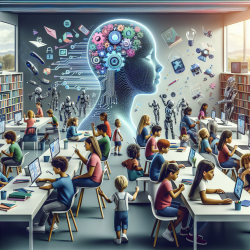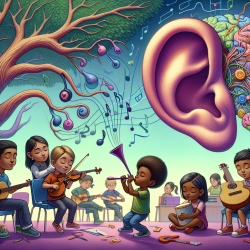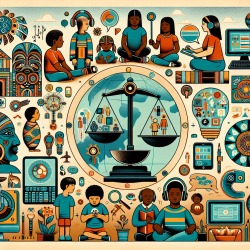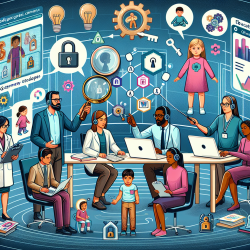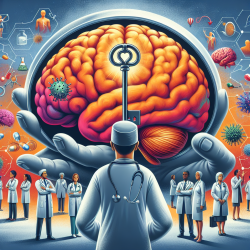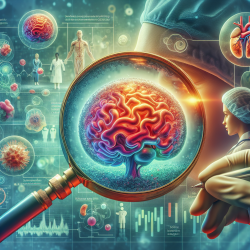As a speech-language pathologist committed to improving outcomes for children, staying informed about the latest research is crucial. One such pivotal study, titled "Artificial Intelligence Enabled Personalised Assistive Tools to Enhance Education of Children with Neurodevelopmental Disorders—A Review," provides a comprehensive overview of how AI technologies can be leveraged to support children with neurodevelopmental disorders (NDDs) like ADHD, dyslexia, and autism spectrum disorders (ASDs).
Understanding the Role of AI in Education for NDDs
The study underscores the increasing prevalence of NDDs and the pressing need for effective interventions. The application of AI in personalized learning tools offers promising solutions. Here are some key insights from the research:
- AI Tools for ADHD: Tools like the 'Child activity sensing and training tool' help students maintain attention and track their physical and physiological activities in real-time.
- AI Tools for Dyslexia: Multi-sensory approaches using AI can enhance reading skills by providing simultaneous information through various channels.
- AI Tools for ASDs: Robots and application-based tools improve social interaction, emotion recognition, and daily living skills.
Implementing AI Tools in Educational Settings
Despite the potential benefits, the study also highlights challenges in implementing these tools:
- Data Scarcity: Limited public databases make it challenging to obtain comprehensive data from children with NDDs.
- Ethical Considerations: Privacy, data security, and informed consent are critical issues that need addressing.
- Cost: The financial burden of installing, maintaining, and repairing AI tools can be significant.
Future Directions for AI in Education
The research suggests that integrating AI tools with cloud computing could address some of these limitations. Cloud-based AI tools can provide real-time personalized learning, ensuring data security and reducing costs through centralized storage and processing.
Conclusion
AI-enabled personalized assistive tools hold great promise for enhancing the education of children with NDDs. However, further research and development are needed to overcome existing challenges and fully realize their potential. As practitioners, staying updated with such advancements and incorporating them into our practices can significantly improve educational outcomes for children with NDDs.
To read the original research paper, please follow this link: Artificial Intelligence Enabled Personalised Assistive Tools to Enhance Education of Children with Neurodevelopmental Disorders—A Review.
